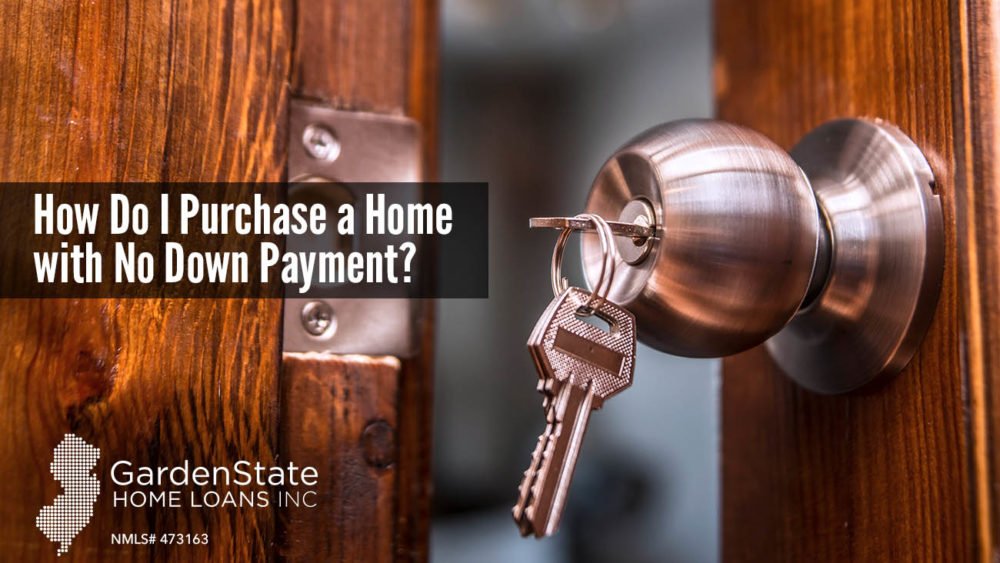
For those with low incomes and little savings, affording a down payment for a new home can be an overwhelming and stressful ordeal. It is the biggest expense in the home purchasing process. Many home mortgages require at least a 10-20% down payment, a sum potential home buyers may be unable to afford. Fortunately, there are many programs assisting buyers in purchasing a home with little to no money down.
Before surrendering your dream of homeownership, explore all available options to help you afford a down payment for your new home.
Zero Down Payment Mortgage
A zero down mortgage is one method for affordable housing, with no money required at the time of closing. Most bankers and mortgage lenders do not offer zero down mortgages due to possibility of losing money. Collateral is typically required to secure this type of payment mortgage. Although zero down payment mortgage plans are difficult to obtain, they are still a feasible option.
Before the housing crisis in 2008, zero down mortgage payments were favored by numerous banks and lenders. Zero down mortgages were a popular option during a time of rising home values. However, the lack of equity in the homes created the 2008 housing crisis. Prices dropped and homeowners owed more on their mortgage than the home was worth.
Some may still offer this type of mortgage. Choosing this option depends on your investment portfolio. There are both advantages and disadvantages in a zero down payment mortgage plan.
Advantages and Disadvantages of Purchasing a Home with no Down Payment
The main advantage to any Zero Down program is the fact that you won’t be burdened with the major upfront cost a typical home purchase comes with. You can keep your savings and use it where you need to.
Although a zero down mortgage payment brings advantages, there are also downsides. In a zero down strategy plan, there are larger monthly payments over a longer period of time. Additionally, without a down payment, there will not be equity in the home, hindering any future decisions, such as taking out a home equity loan. It also often takes longer to get all of the extra paperwork in place to get the zero down payment.
When considering purchasing a home without a down payment, explore options that may assist in mortgage loans.
VA Loans
Veterans Affairs (VA) mortgage loans are one of the few options available for those seeking to purchase a home without a downpayment. In order to be eligible, you must be currently serving or have formerly served in the military as well as have a valid Certificate of Eligibility (COE). Read our article on VA requirements and qualifications. Furthermore, these loans do not require mortgage insurance or a minimum credit score. Check out VA loans by state here.
Navy Federal
The Navy Federal Credit Union offers 100% financing for qualified members looking to purchase a primary home. As the nation’s largest financial institution in assets and membership, there is eligibility for members, families, and employees of the military and U.S. Department of Defense. The Navy Federal’s zero-down program funding fee is 1.75% less than the VA’s funding fee.
USDA Mortgage Loans
A USDA mortgage loan is available for homebuyers in both rural and suburban areas. Implemented in 1949, USDA loans are government sponsored loans encouraging affordable homes for people with low-to-moderate income in eligible areas. Check out our article on USDA property eligibility. To qualify for USDA Mortgage loans, you must fulfill certain requirements such as earning a low-to-moderate income, a minimum 640 credit score, the property must be your primary residence, etc. This loan provides 100% financing, as well as offers low interest rates and low monthly private mortgage insurance (PMI).
Down Payment Assistance
Using a down payment assistance program may be the best choice if you are unable to obtain a loan with no down payment. The money is provided in grants, interest-free loans, or a debt to be paid off in the future.
Although it may seem like the perfect program for you, there are certain requirements to be eligible to receive down payment assistance. Every state has different rules and regulations based on income and the home they are seeking to buy. Research programs accessible in your area and identify any requirements to qualify for down payment assistance.
Zero-down payment mortgages can be tempting, however it is important to understand all steps in this process. For instance, zero down mortgage payment plans may potentially impact future finances and debt burden. Consider both the benefits and consequences of purchasing a home without a down payment. Additionally, be sure you are able to afford your payments and have money set aside for any unexpected costs.
In the long run, a zero down mortgage loan will result in a lack of equity. Be sure you won’t need to sell within the next few years, so you can build ownership in your home.
Remember, in addition to being a financial decision, buying a home is also an emotional purchase.


Comments are closed.